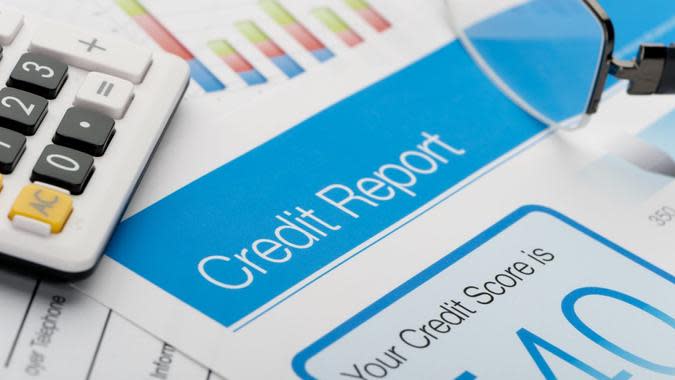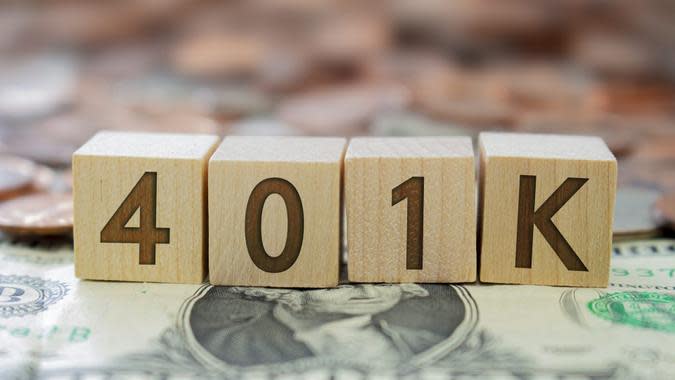10 ‘Normal’ Money Habits That Are Actually Harmful to Your Financial Wellness

Just because you get into the habit of doing something doesn’t mean it’s good for you — and gnawed-on fingernails and cracked knuckles aren’t the only proof. Some of the worst habits that tend to die the hardest show up not only on people’s bodies but in their financial lives as well.
Check Out: I’m a Bank Teller: Here Are 10 Mistakes You Are Making With Your Banking
Learn More: 6 Genius Things All Wealthy People Do With Their Money
From the way people budget to the way they spend, save and invest, minor sins are easy to come by. Like so many bad habits, some people don’t even realize they’re making money-related mistakes at the time. Or they realize it but find it hard to change.

Not Following a Basic Budget
Many people have no idea how much money they spend each month. Perhaps unsurprisingly, younger adults are the least likely to keep track of their spending. No matter your age, your financial goals both big and small will die on the vine if you don’t know how much money you’re bringing in, how much you’re spending, where you’re overspending and the percentage of income that you’re saving — if you’re saving at all.
For Retirement: 7 Ways Shopping at Costco Helps Retirees Stick To a Budget
Find Out: 4 Best Cable TV and Internet Options To Better Fit Your Budget
Sponsored: Owe the IRS $10K or more? Schedule a FREE consultation to see if you qualify for tax relief.

Ignoring Your Credit Until It Matters
Despite the widespread availability of free apps such as Credit Karma and free credit trackers that come with most bank accounts and credit cards, plenty of people still ignore their credit for most of the year. They check in only when they’re up for big purchases or loans, often finding that their scores are a whole lot lower than they had imagined or that there are mistakes on their reports that they could have corrected before the damage was done.
The truth is your credit is important 365 days a year. It affects the rates you’ll pay, not only for mortgages and auto loans, but for things like insurance and utilities. It also impacts whether employers see you as hireable or whether landlords will take you on as a renter.
Knowing what’s in your credit report is the first step to managing your credit. By tuning out, you’re accepting a more expensive life.
Discover Next: 6 Ways To Tell If You’re Financially Smarter Than the Average American

Carrying a Balance on Your Credit Card
Many of America’s credit card users carry a balance on their accounts — which is exactly what banks want them to do. When you pay your statement balance in full every month, you pay only as much as is needed to cover your purchases.
If you don’t pay your entire statement and carry a balance, on the other hand, the bank will hit you with finance charges. With the average credit card interest rate now hovering around 20%, that balance will find a way to grow even as you try to pay it down, leading to an endless snowball effect of new interest compounding on last month’s interest.
If you pay your balance in full just two months in a row, however, finance charges — and that toxic cycle of debt — come to an end.

Automating Your Bills to a Fault
You can streamline your household expenses and never miss a payment by setting your monthly bills to be automatically deducted from your bank account. The problem, however, is that automatic bill pay makes it easy to lose track of what you’re paying and to whom. This is especially true when it comes to all of those far-flung apps, streaming services and other subscriptions that you might use only rarely — or not at all — yet pay like clockwork without even knowing it thanks to autopay.

Setting and Forgetting Your 401(k)
It’s easier to forget about your 401(k) than any other type of investment because your contributions are pulled directly from your paycheck before you even see it. Also, 80% of 401(k) participants are invested in target-date funds, which are designed to be set and forgotten about — but that’s a dangerous investing strategy.
Target-date funds work for the young because they allocate 95% or so of contributions to stocks; but, as plans become more conservative over time, they rarely keep up with the risk tolerance or individual goals of the people who own them.
If you have a 401(k), make it a habit to check in with your investments at least once a year.
For You: Suze Orman: Parents, Get Roth IRAs for Your Kids So They Can Retire Millionaires

Blindly Letting Algorithms Choose Your Investments
Robo-advisors are the ultimate in automated investing, and they’ve made it easy for novices to put their money to work for them.
Robo-advisors remove human emotion, human bias and, therefore, human error. The problem is that the convenience — and the complacency that automation breeds — can work against investors who take it on faith that software always will make the right choices.
When algorithms make passive investments on your behalf, you eliminate not just human error, but the human perspective as well. When robo-advisors are left on autopilot, neither you nor a human advisor can direct your investments toward specific securities or specific investing goals.

Investing To Get Rich Quick
Day trading, buying into unfamiliar alternative investments like cryptocurrency, trying to time the market and picking individual stocks all offer the promise of untold riches without all the waiting that comes with long-term investing.
The promise, however, rarely delivers — at least not for long. Those who go all in on a trending stock hoping to flip the stock for a quick buck, for example, often end up wishing they had bought and held a basket with many more eggs.
The surest way to build wealth is by investing slowly and steadily in an index fund ETF or a similar low-cost bag of securities and sticking with it over the years and decades.

Not Taking Advantage of Credit Card Rewards
Although most American consumers own a rewards credit card, many use a debit card as their primary means of making daily purchases. Some people pay with cash — which is what you’re doing when you use a debit card — because they’re afraid a credit card will enable overspending. Others do it because they don’t want to take on high-interest debt, which responsible credit card users never do.
No matter the reason, people who have but don’t use credit cards that deliver points, miles or cash back are throwing away free money and essentially paying more for the things they buy every day.

Not Communicating With Your Partner About Money
It’s no secret that money-related friction is the root of many, if not most, divorces. Secret spending by one partner, mismatched financial priorities and unexpected financial emergencies top the list of reasons, according to Business Insider.
At the heart of it all is a failure to have uncomfortable but all-important discussions about money.
Frank and open discussions about money can improve relationships, but you shouldn’t expect marriage — or any long-term personal partnership — to create financial bliss. When you marry a person, you marry their finances, too.
Trending Now: 7 Key Signs You’ve Reached Financial Freedom

Not Balancing Present Enjoyment with Future Planning
Overspending is a common issue that many people face, particularly when it comes to experiences such as dining out, entertainment, and travel. The temptation to overspend can come about in periods of economic stability as well as in uncertain times. If you keep your long-term financial goals in mind, you can weather these temptations, and create consistent and healthy spending habits.
One approach to managing spending is to focus on saving, while also investing in experiences and purchases that bring long-term value and joy. By striking a balance between enjoying the present and planning for the future, you can avoid the negative consequences of overspending and cultivate a healthier relationship with your finances.
Laura Beck contributed to the reporting for this article.
More From GOBankingRates
What Makes a Good Bank in 2024, According to a Banking Expert
I'm a Personal Finance Writer: These Are the Worst Money Mistakes I Made in 2023
This article originally appeared on GOBankingRates.com: 10 ‘Normal’ Money Habits That Are Actually Harmful to Your Financial Wellness

 Yahoo Finance
Yahoo Finance 